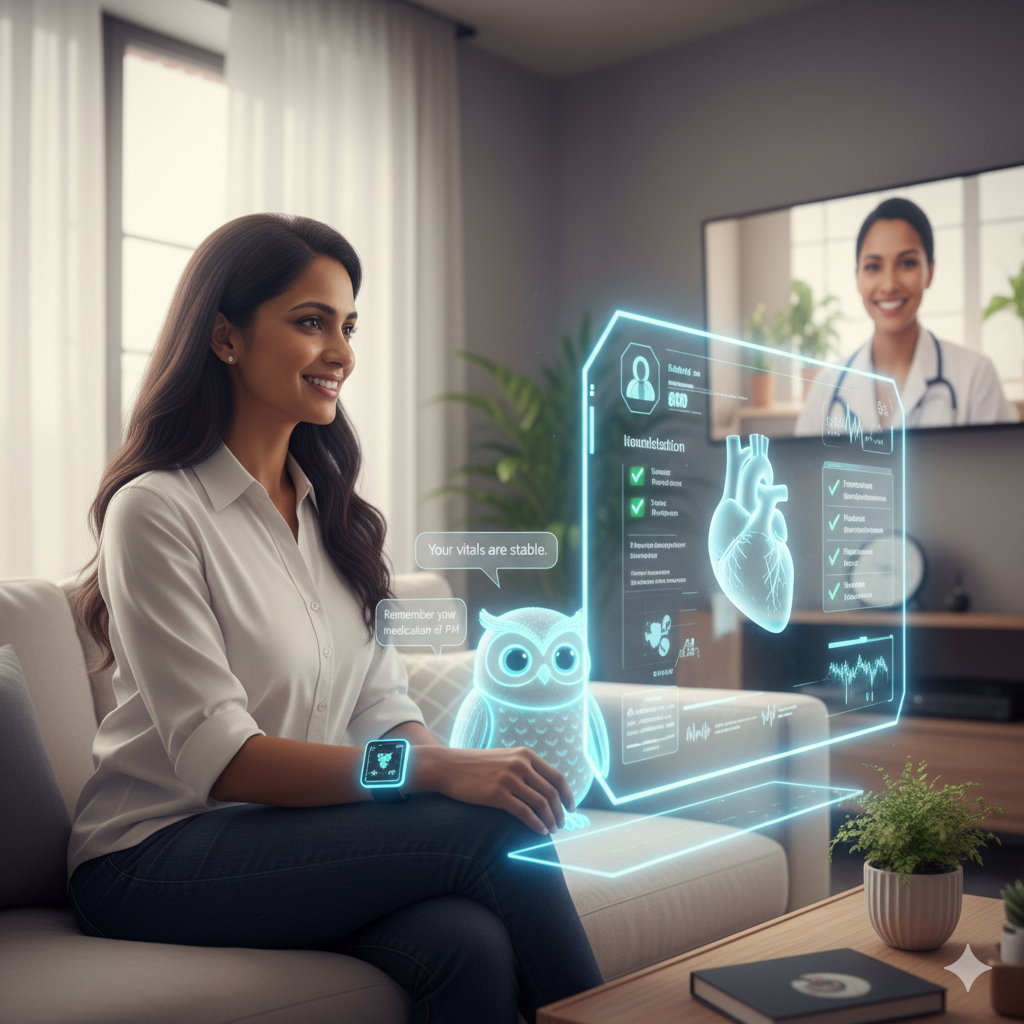 07 August 2025
07 August 2025
How AI in Healthcare is Revolutionizing Doctor Visits and the Future of Care
The vision of an AI making a diagnosis is compelling but remains a distant prospect. The path to adopting AI in healthcare for core clinical decisions is rightly slow, governed by strict regulations and fundamental questions of accountability.
However, this cautious pace in diagnostics stands in stark contrast to the rapid changes happening elsewhere. A different kind of AI is already here, and it's transforming the patient experience from the ground up.
This is the realm of agentic AI, autonomous systems designed not just to perform a task, but to manage an entire workflow.
Instead of replacing doctors, these AI agents are fixing the logistical friction that bogs down the healthcare system, making it more efficient, responsive, and human-centric.
How is AI used in healthcare?
On the administrative side, agentic AI systems are making the process of booking appointments much more efficient. They can analyze a doctor's schedule, predict cancellations, and offer open slots to patients on a waiting list in real-time. AI avatars can also talk to patients and help them schedule appointments.
For ongoing care, AI is also used to send personalized medicine reminders.
In clinical support, AI tools can now listen to a doctor-patient conversation and automatically write down the notes from the visit.
What are the advantages of using AI in healthcare?
Agentic AI can reduce administrative workload by automating repetitive tasks like scheduling and documentation. This increased efficiency allows clinical staff to spend more time on patient care.
AI systems can also analyze vast amounts of data quickly and consistently. This helps in making more informed decisions and reduces the likelihood of errors.
How does AI reduce human error in healthcare?
AI provides a crucial safety net for medical professionals. A doctor is always in charge. The technology, however, can help reduce human error in healthcare by flagging things that might otherwise go unnoticed.
For example, an AI can analyze a medical scan. It can highlight a tiny, suspicious detail that warrants a closer look. It can also instantly double-check a new prescription against a patient's entire medical history. This helps flag potentially dangerous drug interactions, while the final decision is still made by a human.
What is the future of AI in healthcare?
The future of AI in healthcare is moving towards a world of predictive and personalized medicine. The long-term vision is becoming clearer. This is especially true as AI in healthcare statistics show a rapid growth in investment and adoption.
Kavita Jha
Chief Executive Officer
Kavita has been adept at execution across start-ups since 2004. At KiKsAR Technologies, focusing on creating real life like shopping experiences for apparel and wearable accessories using AI, AR and 3D modeling.
